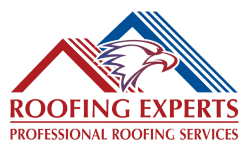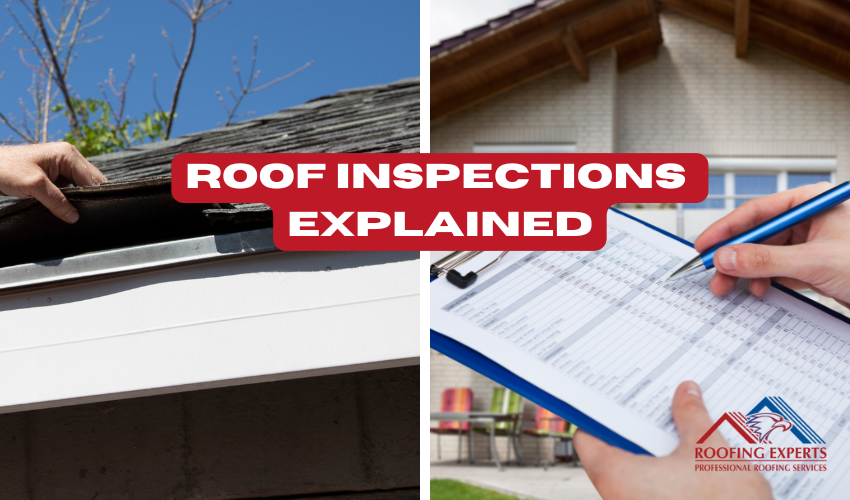How do you find a Savannah Roofing Inspection, and what should you know? First thing, just because a roofing inspection is free, it doesn’t mean it is a quality inspection!
If the cheapest quote always won, half of Savannah would be re-roofing twice. A good inspection isn’t about finding the lowest price; it’s about finding the truth. Real contractors inspect attic moisture, flashing gaps, and underlayment health before ever mentioning a number.
Safe to assume you want to avoid surprise roofing costs later? Today, we’ll show you how to spot an inspection worth paying for and how to tell if a quote is built on skill or shortcuts. That said, we do offer free roofing inspections, so be sure to keep reading to learn what all that entails!
What Is a Roof Inspection and Why Is It Essential in Savannah?
Just like you go to the doctors and dentist 1-2 times per year, you want to make sure your home’s largest protector is well-maintained, aka your roof!
Simply put, a roof inspection is a top-to-bottom health check that identifies leaks, weak flashing, and ventilation issues before they become costly repairs or necessitate a new roof. In Savannah’s humid, storm-prone climate, roof inspections are vital to see how your shingles, metal flashing, and gutters handle heat, salt air, and sudden downpours.
Think of it as preventive care that keeps water out and value in, catching any possible damage before it is too late! A roof leak usually starts small but can grow over time unless addressed.
What Does a Comprehensive Roof Inspection Include?

What do you do when you complete a roof inspection? That is a great question. It includes a lot and includes both internal and external inspections.
Here is what a thorough roofing pro reviews, and why it matters:
- Roof surface and details: Shingles, tiles, or metal for wear, plus valleys, flashing, and penetrations, since these areas are where most leaks start.
- Structure and ventilation: Deck condition, attic moisture, soffit and ridge airflow, because dry, moving air prevents rot and shingle curl.
- Water path testing: Gutters, downspouts, and drip edges, so storm water leaves the roof fast instead of soaking the fascia or walls.
How Often Should Savannah Homeowners Schedule Roof Inspections?
We always recommend that you have your roof inspected in Savannah at least once because of the severity of our storms. Twice a year is smart, spring and fall, plus any time after a significant wind or hail event. Factors like older roofs, coastal exposure, or recent leak history benefit from quarterly checks until performance stabilizes, but that is rare and only for roofs creeping up in age to 15-20.
What Are the Benefits of Regular Roof Inspections?
Think prevention first, but a regular roof inspection will help catch minor problems before they become too big! One missing shingle is easy to fix and very inexpensive; however, a new roof averages $10,000 to $15,000 easily.
Here is what a regular roof inspection in the Savannah area does:
- Fewer leaks, fewer repairs: Early fixes prevent ceiling stains, drywall damage, and mold, saving on both materials and labor.
- Longer roof life and warranty protection: Documented care keeps components within spec, delaying replacement and preserving coverage.
- Lower ownership costs: Cleaner drainage and correct ventilation improve efficiency, reduce emergency calls, and make insurance claims smoother.
How Do Local Weather Conditions Affect Roof Inspections in Savannah?
Local climate shapes what inspectors prioritize. As someone who’s lived in Savannah my whole life and inspected roofs across Chatham, Bryan, and Effingham Counties for over 20 years, I can tell you firsthand our coastal weather plays a significant role in how, when, and why roof inspections need to be done.
Here is the short list that protects your wallet:
- Humidity and heat: Check for algae streaks, soft decking, and shingle blistering, since trapped moisture shortens service life and invites rot.
- Coastal wind and salt: Verify fastener tightness, flashing laps, and exposed metal, because uplift and corrosion start at edges and seams.
- Heavy rain events: Confirm valley integrity, gutter pitch, and downspout flow, so water exits quickly and does not back up under shingles.
How to Get a Reliable Roofing Estimate in Savannah: Step-by-Step Guide

Do you know what the most common cause of a roof leak is? Flashing.
About four out of five roof leaks start at penetrations or flashing. That single fact explains why quick drive-by quotes often miss the real problem. A reliable estimate comes from a methodical process that checks where water actually travels, then ties scope, materials, and warranty to those findings.
1. Define Your Roof’s Condition Clearly
List any leaks, stains, storm damage, or past repairs. Note the roof’s age and materials, and provide attic access and photos so the roofer can assess accurately.
2. Verify You’re Hiring a True Local Pro
Shortlist established Savannah companies with a physical address. Confirm license, insurance, and manufacturer certifications, and ask for recent jobs in neighborhoods like Pooler, Richmond Hill, and Skidaway.
3. Require a Full Roof & Attic Inspection
No curbside quotes. Ask for photos of flashing, valleys, decking, ventilation, and moisture readings if leaks are suspected—especially important in our humid coastal climate.
4. Confirm Code, Wind, and Coastal Compliance
Your roofer should explain the correct underlayment, fastener schedule, flashing metals, and ventilation required for coastal Georgia’s wind speeds, salt air, and humidity.
5. Choose Materials Built for Coastal Savannah
Specify the shingle class or metal type, underlayment grade, corrosion-resistant flashing, and attic ventilation system. These choices make or break long-term performance here.
6. Get a Detailed, Line-Item Estimate and Clear Plan
Demand a breakdown for labor, tear-off, decking repair pricing, ventilation, gutters, permits, cleanup, timelines, and communication. For insurance jobs, request photo mapping and a clear scope.
Your packet should include: a photo report, the signed scope with part numbers, and written workmanship and manufacturer warranties.
What Information Is Included in a Detailed Roofing Estimate?
What is included in a roofing inspection report? Whether it is an estimate or just an inspection, before we talk numbers, here is what a real estimate spells out:
- Scope and specs: Brands and models, underlayment grade, flashing metals, and ventilation method.
- Labor and logistics: Tear off and disposal, deck repair per sheet price, site protection, daily cleanup.
- Compliance and coverage: Permit fees, code items, wind rating, workmanship, and manufacturer warranties.
Here at Roofing Experts of Savannah, Pooler, and Bryan County, we will provide a quote for roof repairs or a new roof, depending on the age of your roof. If repairs start to cost 30-40% as much as a new roof, we recommend a new roof. Some roof damage is also covered by insurance, so we can help report that as well!
How Does a Roofing Estimate Differ From a Quote?
An estimate is a best-price forecast based on today’s findings. A quote is a firm price tied to a defined scope. Estimates can change after hidden rot appears; quotes only change if the scope does. If the price is fixed, it should say “quote” and list every included task and material.
What Factors Influence Roofing Estimate Costs in Savannah?
Roofing estimates in our area depend on a few key factors that every homeowner should understand before comparing prices. Coastal conditions shift pricing more than most homeowners expect due to demand. Here is what to watch for:
- Access and exposure: Pitch, height, wind zone, and salt proximity that require upgraded fasteners or metals.
- Condition and complexity: Hidden rot, multiple roof planes, chimneys, valleys, and skylights that add flashing time.
- Timing and protection: Storm season demand, emergency dry-ins, material lead times, and weather windows.
What Are the Most Common Roof Problems in Savannah That Inspections Find:
Savannah’s warm, humid air and coastal storms turn minor roof flaws into expensive surprises. The most common problems inspectors find are moisture damage, corroded flashing, and wind-lifted shingles. Each issue skews inspection results and cost estimates, making early detection critical. Here’s how they show up and why they matter.
How to Identify Roof Leaks and Damage During Inspections?
Leaks rarely start where you see the stain. Water runs along trusses, nails, or insulation before it shows indoors, which is why roofing companies that are experts will also look inside your attic. During an inspection, pros trace that path with moisture meters and attic scans, checking for hidden rot and delaminated decking.
- Water stains or bubbling paint inside signal trapped moisture.
- Dark streaks or soft spots on the roof surface indicate algae or rotted sheathing.
- Damp insulation or rusted fasteners in the attic confirm active leakage.
What Emergency Roof Repairs Are Often Needed in Savannah?
Below is a quick look at the most common emergency repairs local homeowners face, what causes them, and how professionals fix them before they worsen.
| Emergency Repair Type | Typical Cause | Professional Fix |
|---|---|---|
| Blown-Off Shingles or Tiles | Strong coastal winds lifting weakly fastened materials | Replace missing shingles, reseal edges, and reinforce fasteners for wind compliance |
| Torn or Dislodged Flashing | Gusts bending metal around chimneys, skylights, or vents | Re-seat or replace flashing, seal joints, and resecure counterflashing to masonry |
| Fallen Tree or Debris Impact | Heavy branches, limbs, or storm debris damaging decking | Temporary tarp installation, structural deck repair, and full shingle or tile reset |
| Roof Leak After Heavy Rain | Clogged gutters, cracked sealant, or saturated valleys | Clear drainage paths, reseal joints, and test flow to prevent future pooling |
| Hail or Debris Punctures | Severe storm impact breaking protective surfaces | Patch holes, replace damaged underlayment, and verify shingle granule coverage |
How Do Roof Repairs Impact Your Roofing Estimate?
Repairs change everything from material totals to labor hours and warranty terms. A roof with soft decking, corroded flashing, or hidden leaks will always cost more than a simple re-shingle.
- Additional labor: Deck replacement and flashing resets extend job time.
- Material upgrades: Coastal exposure may require higher wind-rated shingles or metal.
- Inspection follow-up: Re-inspection ensures warranty eligibility and updated documentation for insurance.
When Should You Consider Roof Replacement? Signs, Costs, and Process in Savannah
Treat roof replacement like investing, not like chasing Bitcoin or NFTs. Hype cannot fix a failing system. Data does. When materials age, wind uplift increases, and moisture loads rise, small repairs stop paying dividends.
Here is when replacement makes more sense than patchwork:
- End-of-life materials: Shingles at 20 to 30 years, metal at 40 to 60 without coatings. UV, heat, and salt accelerate oxidation and granule loss, which raises leak risk. Cost signal: asphalt typically 5 to 9 dollars per square foot, metal 10 to 18, tile 12 to 24, depending on pitch and access.
- Widespread leaks or soft decking: Deck moisture above about 20 percent invites rot and fastener pull-through. Multiple leak points mean the system, not a detail, has failed.
- Storm and wind fatigue: Repeated gusts loosen seals and nails even without missing shingles. If uplift patterns appear across planes and at edges, sealing strips will not reliably re-bond.
- Flashing failure across roof lines: Chronic leaks at chimneys, valleys, and walls suggest missequenced details. Rebuilding all major flashings usually pairs best with a new roof.
- Poor ventilation and heat damage: Curled tabs, brittle mats, and attic temps well above outdoor ambient indicate insufficient airflow. Replacement allows corrected intake and exhaust.
- Mismatched layers or overlays: Stacked shingles trap heat and moisture, masking deck problems. Removing layers, repairing sheathing, and restarting clean prevents recurring issues.
What it costs in Savannah, based on typical homes:
- Architectural asphalt replacement: roughly $9,000 to $20,000 on average-sized roofs.
- Metal (aluminum or coated steel): roughly $18,000 to $45,000, depending on exposure and profile.
- Tile or high-end composites: often $25,000 to $60,000+ due to weight, framing checks, and specialty labor.
These are approximates. Roof pitch, stories, access, rot repairs, and coastal hardware can raise or lower totals. Get a written, line-item estimate.
The Final Word on Savannah Roof Inspections
The best time to fix your roof was before the leak. The second-best time is NOW. In all seriousness, it is best to have your roof inspected after each winter or if you notice damage after a big storm hits the Savannah region.
Some signs like missing shingles are obvious, others are not!
Schedule your free roofing inspection with us and get an honest quote, no BS. Wouldn’t you rather spend your money on vacation than on ceiling repairs?
- Savannah Roofing Experts specialize in roofing, including metal, asphalt shingles, and commercial roofing.
- We can help with roof repairs and roof leak fixes.
- Recgonized as one of the best roofing companies in Savannah.



Comments are closed